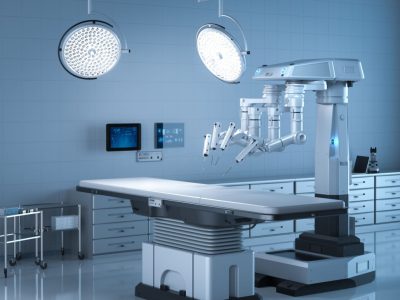Robotic Urology
- Home -> Robotic Urology
Robotic Urology
Robotic urology, also known as robot-assisted urologic surgery, is a specialized surgical technique that utilizes robotic systems to perform urological procedures with enhanced precision and control. It combines the expertise of the surgeon with the advanced capabilities of robotic technology to improve surgical outcomes and minimize the invasiveness of the procedure.
In robotic urology, a surgical robot, such as the da Vinci Surgical System, is used. The system consists of a console where the surgeon sits and controls the surgical instruments, as well as robotic arms that hold and manipulate the instruments. The surgeon operates the robotic system using hand controls and foot pedals, which translate their movements into precise robotic movements.

Robotic urologic surgery offers several advantages over traditional open surgery or laparoscopic surgery:
Enhanced precision: The robotic system provides high-definition, magnified 3D imaging, allowing the surgeon to visualize the surgical site in detail. The robotic arms have a greater range of motion and can perform precise movements, enabling the surgeon to maneuver more effectively.
Improved dexterity: The robotic instruments used in urologic surgery have articulated wrists that mimic the movements of the surgeon’s hand. This enhanced dexterity allows for precise manipulation of tissues and delicate structures within the urinary system.
Reduced invasiveness: Robotic urologic surgery is typically performed through small keyhole incisions, similar to laparoscopic surgery. The smaller incisions result in less trauma to the surrounding tissues, reduced blood loss, and faster recovery times compared to traditional open surgery.
Reduced postoperative pain and scarring: The smaller incisions in robotic surgery lead to reduced postoperative pain and discomfort. Additionally, the cosmetic outcome is improved as the incisions are smaller, resulting in minimal scarring.
Shorter hospital stays: Robotic urologic surgery often allows for shorter hospital stays compared to open surgery. Patients may experience a faster recovery and return to normal activities sooner.
